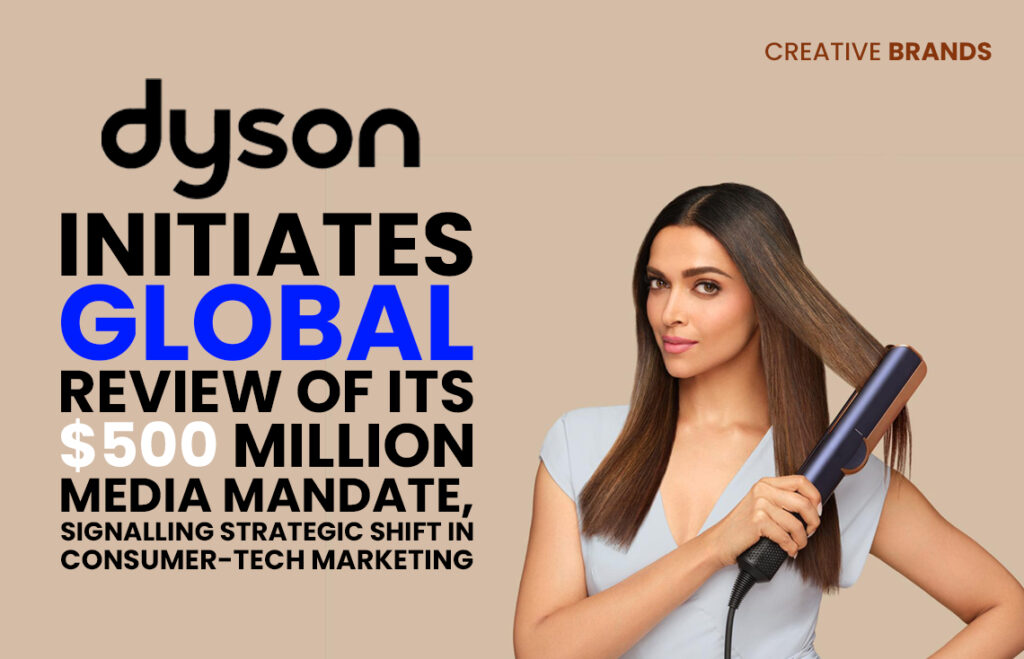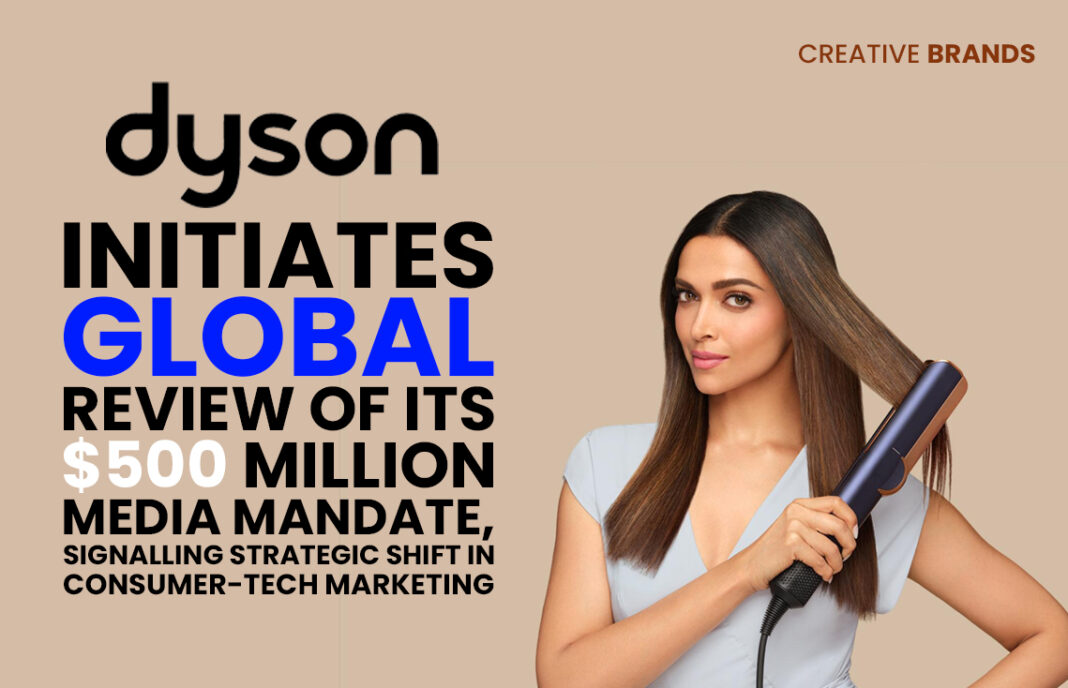Dyson has launched a global review of its $500 million media mandate, prompting incumbent IPG Mediabrands to defend the account. The consumer-tech giant is reassessing its worldwide media strategy amid evolving market dynamics, signalling a push for sharper, integrated, and future-ready media planning across its growing product portfolio.

Dyson, the global consumer-technology giant known for its design-led innovations, has launched a worldwide review of its $500 million media mandate, marking one of the most closely watched pitches of the year. The move signals a renewed push by the company to refine its global media strategy amid intensifying competition in the premium tech and home-appliance market.
The review places current incumbent IPG Mediabrands in the spotlight, as the network prepares to defend the business it has handled across multiple markets. Dyson’s decision to initiate a full-scale evaluation reflects the brand’s evolving ambitions and its need for sharper, more globally cohesive media thinking as it expands into new categories and strengthens its presence in established ones.
Industry observers say the review comes at a time when the media landscape is shifting rapidly. Privacy changes, AI-led personalisation, and the diversification of retail media networks have forced consumer-tech majors to rethink how they engage audiences across platforms. For a brand like Dyson—whose marketing heavily relies on strong product demos, experiential appeal, and premium positioning—media strategy plays a crucial role in shaping consumer belief.
A global mandate of this size typically includes responsibilities spanning media planning, buying, performance optimisation, omnichannel integration, and data-driven audience mapping. With Dyson’s portfolio now extending from vacuum cleaners and air purifiers to headphones, hair care tools, and lighting, the agency partner’s ability to navigate cross-category insights will likely be central to the pitch.
Dyson’s last major agency shifts have often preceded product expansions or strategic pivots, and this review appears to continue that pattern. As the brand leans deeper into smart-home ecosystems and beauty-tech innovation, the need for a media partner capable of orchestrating high-impact global visibility becomes even more critical.
While IPG Mediabrands will seek to retain the account by emphasising continuity and past performance, the review opens the door for other major agency networks to compete for one of the most prestigious mandates in the consumer-tech sector.
With $500 million on the line and Dyson’s next chapter of innovation on the horizon, the global media review promises to reshape not just the brand’s marketing future, but also the competitive dynamics among top media agencies worldwide.
Discover more from Creative Brands
Subscribe to get the latest posts sent to your email.






